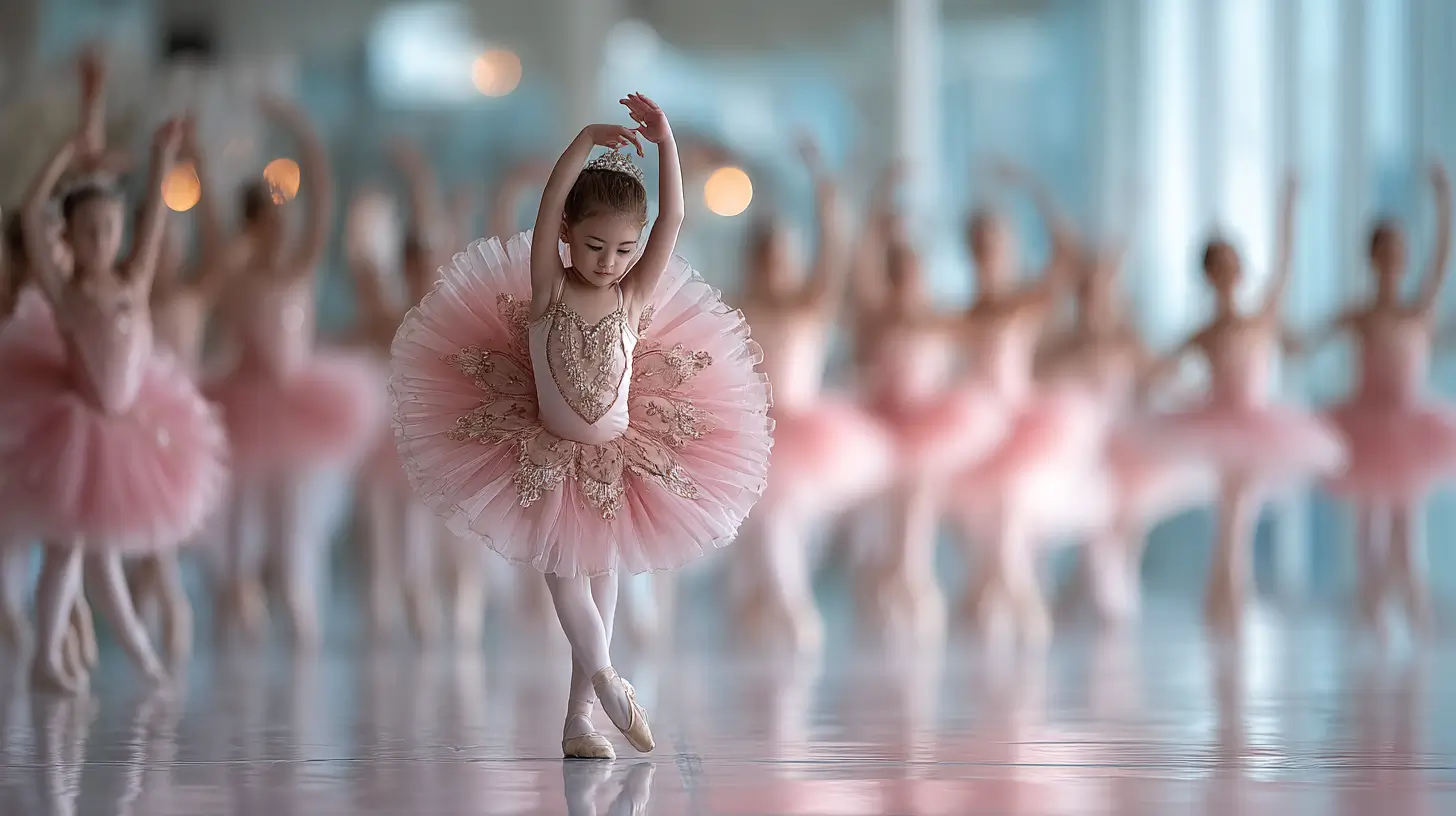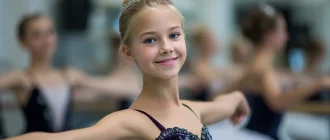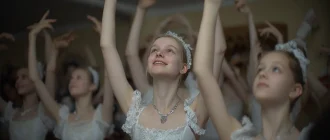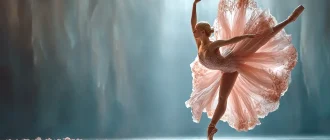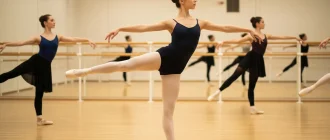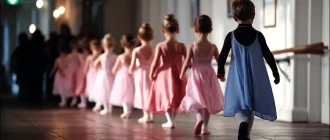Want to know the best ballet schools in Brazil? This guide covers top schools known for their strong programs, successful alums, and community impact. Find out which schools lead in ballet education.
International schools, such as the Royal Ballet School and the Cuban National Ballet School, significantly impact dancers’ ballet training and employment outcomes. These schools produce high-ranking dancers who compete effectively in top companies worldwide.
Key Takeaways
- Cisne Negro Companhia de Dança is recognized for its excellence in contemporary and classical dance, producing notable alumni and promoting social responsibility through accessible ballet education.
- Brazil’s Bolshoi Theatre School provides rigorous classical ballet training like its Moscow counterpart. The school has a high graduate employment rate and successful alumni on international stages.
- Escola de Dança Petite Danse emphasizes community engagement and offers free dance education to underprivileged children. It fosters a diverse future in ballet and creates professional opportunities for its graduates.
Brazil’s Top 5 Ballet Schools Podcast
| # | Ballet school (year founded) | City/state | Why it’s a 2025 standout |
|---|---|---|---|
| 1 | Escola do Teatro Bolshoi no Brasil (2000) | Joinville, SC | Only Bolshoi branch outside Russia; marks 25 years in 2025 with a Brazilian Senate tribute and a season of free nationwide auditions, reinforcing its mix of Russian technique and social inclusion. Destaque Regional |
| 2 | Escola Estadual de Dança Maria Olenewa (1927) | Rio de Janeiro, RJ | Brazil’s oldest classical school and feeder for the Theatro Municipal, this year’s Swan-Lake cast is 90 % alumni, underscoring nearly a century of elite training. Tempo Real RJ |
| 3 | Escola de Dança de São Paulo (EDASP) (1940) | São Paulo, SP | Public, tuition-free nine-year program; 2025 process drew a fresh cohort after an expanded curriculum in ballet, modern, and Brazilian dance, confirming its status as the country’s most comprehensive public conservatory. Prefeitura de São Paulo |
| 4 | Escola de Dança Teatro Guaíra (1956) | Curitiba, PR | Historic state-run academy linked to Balé Teatro Guaíra; new 2025 intake (173 applicants) and outreach project “Guaíra para Todos” reached 3,400 people, spotlighting rigorous seven-year classical training in southern Brazil. teatroguaira.pr.gov.br |
| 5 | Ballet Adriana Assaf / Cia. Paulista de Dança (2006) | São Paulo, SP | Private technical school famed for 500+ national & international prizes; in 2024-25 staged Dom Quixote and La Bayadère with professional casts, cementing a record of high-level stage experience for students. UOL |
How this “Top 5” was determined
- Recent performance & recognition (2024-25 seasons).
- Selectivity/prestige (competition audition data, prize history).
- Depth of curriculum & pathways to professional companies.
- National reach & social impact (free programs, public support).
These five schools consistently produce dancers who dominate Brazil’s major companies and international competitions, making them the country’s premier choices for serious ballet study in 2025.
Ballet Education in Brazil
Ballet education in Brazil boasts a rich and storied history, with numerous institutions offering top-tier training programs for aspiring professional dancers. Among these, the Bolshoi Theater School Brazil stands out as a unique gem, being the only official branch of the Bolshoi Theater School outside of Russia. Located in Joinville, Santa Catarina, this prestigious institution mirrors its Moscow counterpart’s rigorous classical ballet training, preparing students for successful careers on international stages.
Brazil’s ballet schools are renowned for their comprehensive programs that blend classical ballet with contemporary dance, ensuring students receive a well-rounded education. These institutions focus on technical excellence and emphasize the importance of cultural enrichment and social responsibility. Aspiring dancers in Brazil have access to world-class training, mentorship from experienced professionals, and opportunities to perform in major productions, making the country a vibrant hub for ballet education.
Cisne Negro Companhia de Dança
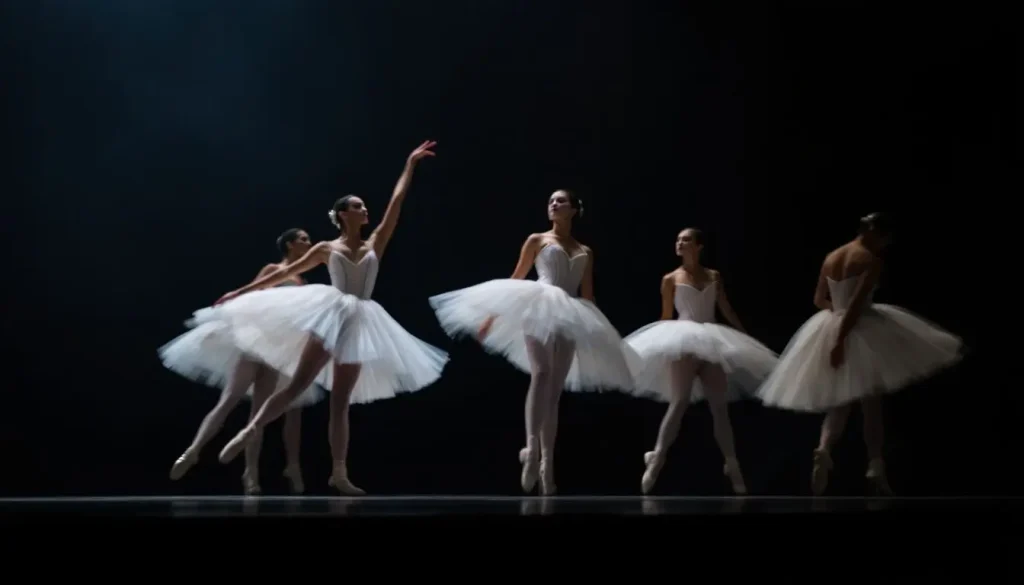
Founded by Hulda Bittencourt, Cisne Negro Companhia de Dança stands as a beacon of excellence in both contemporary and classical dance teaching methods. Under the artistic direction of Dany Bittencourt, the company has cemented its reputation as the best modern dance company in Brazil, known for its innovative performances and talent development. Its mission to enrich Brazilian culture nationally and internationally is evident in its artistic endeavours and significant recognition from critics and the public.
The international presence and history of Cisne Negro are impressive, as they have showcased performances on four continents during their international tour, highlighting their global influence. The legacy of Hulda Bittencourt continues to inspire and shape the Brazilian dance scene today.
Achievements and Alumni
Cisne Negro Companhia de Dança has produced an array of notable alums who have made significant contributions to the global dance community. These former students have joined prestigious ballet companies worldwide, furthering their careers and showcasing their talent on international stages. These alumni’s success underscores Brazilian ballet’s influence on the global dance landscape.
The school’s graduates frequently contribute to tours and collaborations with top companies, enhancing their professional portfolios and bringing Brazilian ballet to new audiences. This network of accomplished dancers is a testament to the school’s high standards and effective training.
Social Responsibility Initiatives
Cisne Negro Companhia de Dança believes that art is a right for everyone and views culture as a powerful tool for social change. Their dedication to social responsibility is evident through initiatives like the ‘CISNE NEGRO DANCE GROUP,’ which offers free ballet classes to at-risk youth. This program provides necessary materials and training sessions, making ballet accessible to all ages and those who might not otherwise have the opportunity.
These social projects foster a love for ballet among young people and help build a more inclusive and diverse dance culture and community. These opportunities offered by Cisne Negro leave a lasting impact on individuals and enrich Brazil’s cultural landscape.
Bolshoi Theater School Brazil
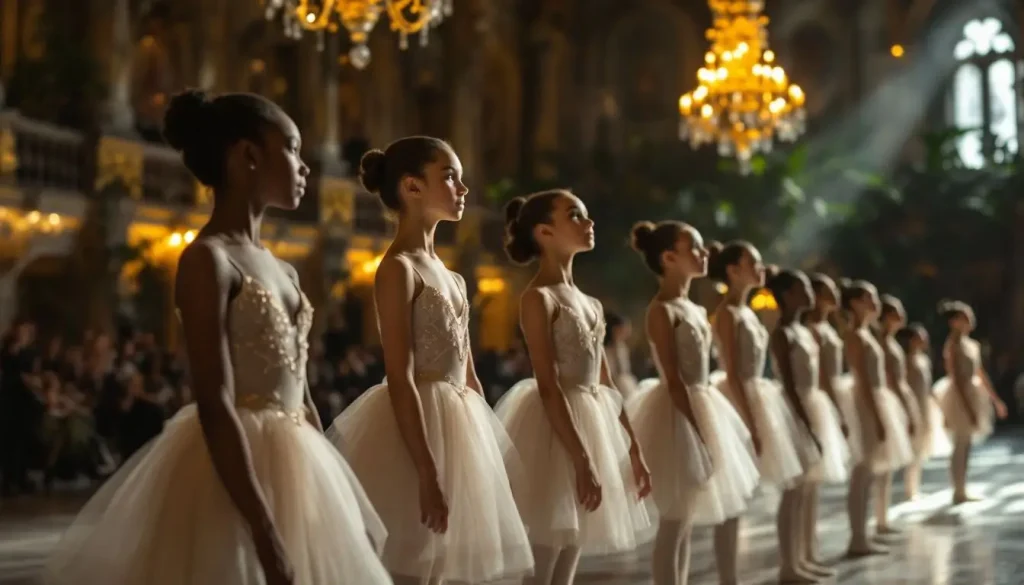
The Bolshoi Theater School Brazil, established in 2000, is a unique institution. It is the first group and only official branch of the Bolshoi Theater School outside Russia. Located in Joinville, Santa Catarina, it stands as a beacon of classical ballet training in Brazil. Luiz Henrique da Silveira significantly promoted the school’s establishment, seeing the value in bringing this prestigious institution to Brazil.
Compared to other prestigious institutions like the Paris Opera Ballet School, the Bolshoi Theater School in Brazil offers rigorous training and produces successful alums.
The Bolshoi Theater School Brazil combines professional excellence with social responsibility, creating an environment where young dancers can thrive. Its rigorous training and commitment to cultural enrichment make it a standout among international ballet schools and the Royal Ballet School.
Rigorous Training Program
The Bolshoi Theater School in Brazil’s training program is designed to mirror the classical ballet training offered at the Bolshoi Theater School in Moscow. Students undergo a demanding schedule of 4.5 hours of daily classes in various dance styles and other academic subjects.
This comprehensive approach, influenced by the rigorous standards of international schools like the Royal Ballet School and Cuban National Ballet School, ensures that students receive a well-rounded education, preparing them for the challenges of a professional dance career.
The success rate of graduates is impressive, with approximately 72% securing employment with prestigious dance companies worldwide. This statistic highlights the school’s training program’s effectiveness and ability to produce top-tier ballet dancers.
Success Stories
Graduates from the Bolshoi Theater School in Brazil have joined renowned ballet companies globally, showcasing the school’s impact on the international dance community. The strong alum network is crucial in enhancing job placement rates for graduating dancers, offering valuable connections and insights that can open doors to auditions and employment. Comparatively, alums from the Paris Opera Ballet School also achieve significant success in top-ranking companies, highlighting the influence of training at prestigious institutions.
The school’s alums have performed over 5,000 presentations, reaching over 3 million audience members across 17 countries. These success stories highlight the graduates’ achievements and the school’s global contribution to promoting Brazilian ballet.
Escola de Dança Maria Olenewa
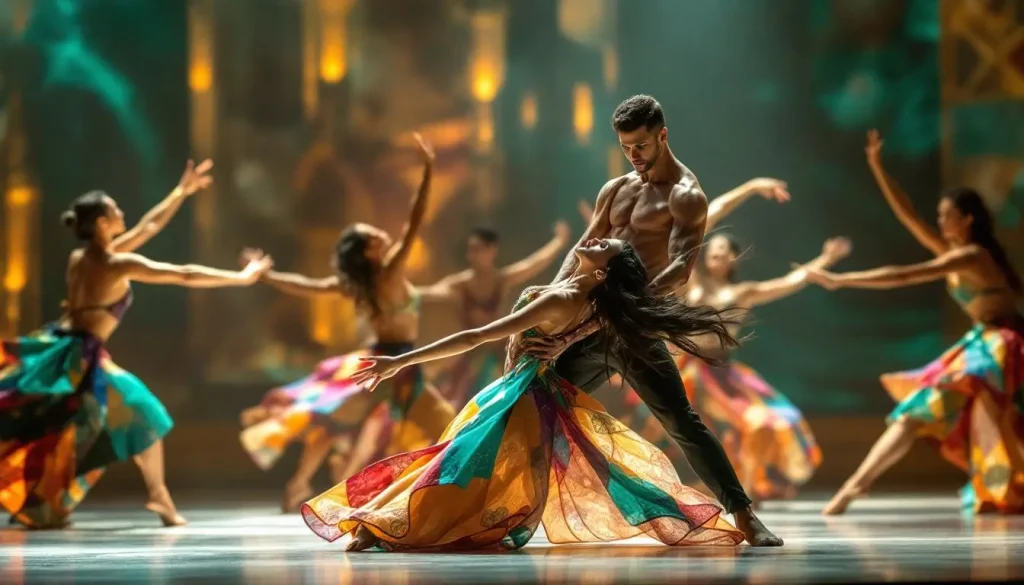
Established in 2000, Escola de Dança Maria Olenewa is affiliated with the prestigious Teatro Municipal do Rio de Janeiro. This connection gives students unique opportunities to engage with professional productions and gain firsthand experience in a renowned cultural institution. The school’s rich history and reputation make it a cornerstone of ballet education in Brazil.
The school has a comprehensive curriculum that includes ballet classrooms, choreography, music studios, and various facilities dedicated to performing arts. This holistic approach ensures that students receive a well-rounded classical and contemporary dance education at the dance school.
Curriculum and Methodology
The curriculum at Escola de Dança Maria Olenewa emphasizes rigorous training in classical ballet and contemporary dance. It utilizes a blend of traditional and other repertoire and innovative teaching methods. Students are taught by experienced teachers who bring a wealth of knowledge and expertise to the classroom. Integrating traditional Russian training methods and repertoire with contemporary dance styles creates a dynamic learning environment.
The training program includes disciplines such as drama, music education, and ballet, ensuring students develop a broad range of skills. This comprehensive approach prepares students for diverse career paths in the performing arts.
Notable Performances and Productions
Students at Escola de Dança Maria Olenewa frequently engage in performances of well-known works of art, such as ‘Don Quixote,’ showcasing their training and talent. These productions provide students with valuable performance experience and the opportunity to demonstrate their skills in front of live audiences.
The school’s major productions highlight its students’ artistic and technical abilities, contributing to their professional development. These performances are a testament to the high training standards and the dedication of its members, both students and teachers.
Ballet Paula Castro
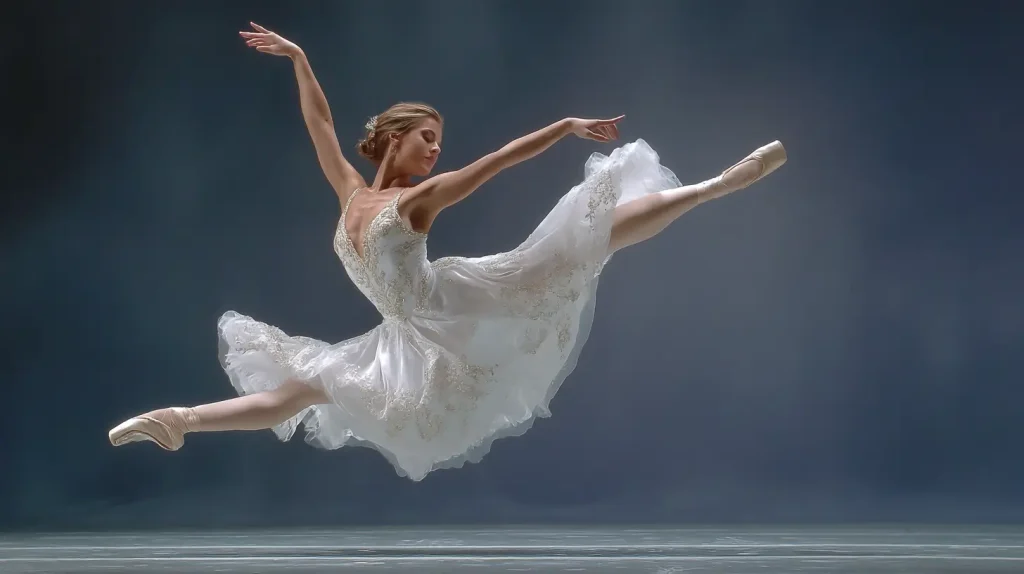
Ballet Paula Castro, located in São Paulo, is renowned for its rigorous training programs and international affiliations. The school’s dedication to excellence is reflected in its partnership with the Royal Academy of Dance, which enhances its curriculum and teaching methodologies. This connection provides students with access to certification programs and international ballet standards.
Selecting an appropriate ballet program is crucial for a successful dance career, and Ballet Paula Castro’s comprehensive training readies students for professional demands.
International Affiliations
Ballet Paula Castro’s partnership with the Royal Academy of Dance allows it to offer its students access to international training resources and certification programs. This affiliation ensures that students receive a high-quality education that meets global standards, enhancing their career prospects.
International schools, such as the Royal Ballet School and the Cuban National Ballet School, play a significant role in producing high-ranking dancers who compete effectively in top companies worldwide.
Graduates of Ballet Paula Castro have enjoyed notable success in international competitions, showcasing their talent on a global stage for eight years. This success is a testament to the school’s rigorous training and commitment to excellence.
Alumni Placements
Many Ballet Paula Castro graduates secure professional opportunities in national and international dance companies. The school’s strong alum network facilitates these placements and provides valuable connections and support for recent graduates.
The success of alums in prestigious companies worldwide highlights the school’s training program’s effectiveness and ability to prepare students for successful careers in dance.
Escola de Dança Petite Danse
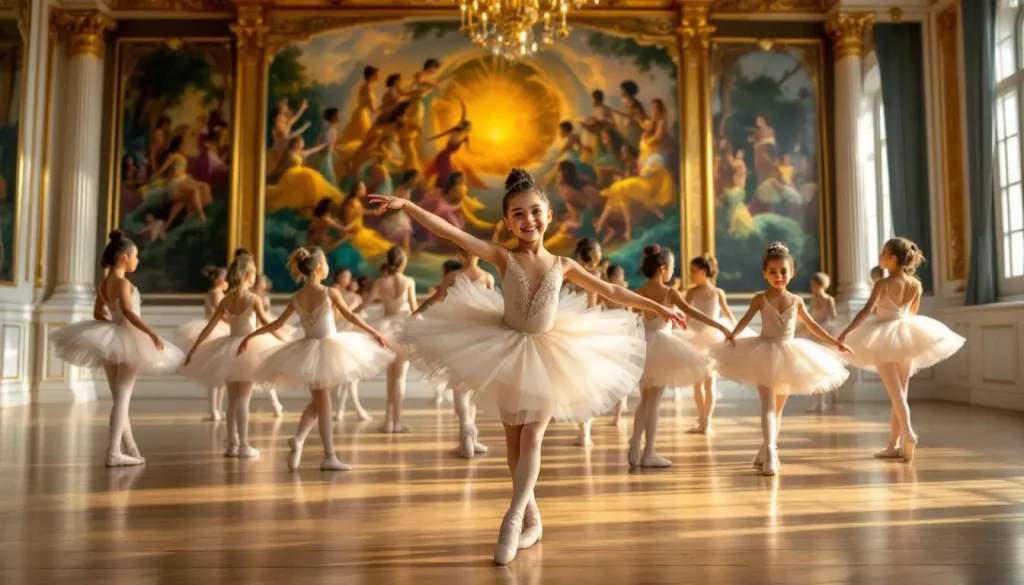
Escola de Dança Petite Danse is recognized for its strong community engagement and high-quality dance education. The school operates as a social initiative, offering free education and support services to students from low-income families. This commitment to accessibility ensures that dance education is available to all children, regardless of their economic background.
The school’s dedication to social responsibility is evident in its efforts to provide dance education to underprivileged city children, foster a love for ballet, and create opportunities for future professional dancers, including those inspired by the New York City Ballet.
Community Outreach Programs
The school offers scholarships to help make dance accessible for children from economically disadvantaged backgrounds. Escola de Dança Petite Danse ensures that underprivileged children can access quality dance education by providing free classes and financial assistance programs.
These community outreach programs are crucial in making dance education inclusive and accessible, helping to build a diverse and vibrant dance community.
Professional Opportunities
Escola de Dança Petite Danse graduates have the chance to join prestigious dance companies nationally and internationally. The school’s rigorous training empowers graduates to explore diverse career paths in the ballet industry, including opportunities within the corps de ballet.
The school’s commitment to high-quality training and professional development ensures its graduates are well-prepared for successful careers in an experienced dance company.
Royal Ballet School Equivalent in Brazil
The Royal Ballet School is synonymous with excellence in ballet, and Brazil has its equivalent: the Escola de Dança do Theatro Municipal do Rio de Janeiro. Situated in the heart of Rio de Janeiro, this esteemed institution offers a comprehensive dance education program that rivals the best in the world.
Students at the Escola de Dança do Theatro Municipal receive rigorous training in classical ballet, contemporary dance, and other performing arts, ensuring they are well-prepared for diverse career paths.
The school’s curriculum is designed to foster technical proficiency and artistic expression, strongly emphasizing performance experience. Students can participate in major productions and collaborate with professional companies, gaining invaluable stage experience.
The Escola de Dança do Theatro Municipal has a stellar reputation for producing talented dancers who go on to perform with prestigious companies worldwide, solidifying its status as Brazil’s answer to the Royal Ballet School.
Competitions and College Programs
Competitions and college programs play a pivotal role in shaping the careers of professional dancers in Brazil. Many students participate in renowned competitions such as the Prix de Lausanne and the Youth America Grand Prix, which offer a platform to showcase their talent, gain recognition, and secure scholarships to top ballet schools. These competitions are stepping stones for young dancers, exposing them to international standards and opportunities to connect with industry professionals.
In addition to competitions, several colleges and universities in Brazil offer dance programs that combine academic education with professional ballet training. These programs provide students with a well-rounded education, covering various dance styles and theoretical subjects.
Institutions like the University of São Paulo and the Federal University of Rio de Janeiro offer specialized dance degrees that prepare students for performance, choreography, and dance education careers. By pursuing these programs, students can earn a degree while honing their skills and gaining professional experience, making them well-equipped for the demands of the ballet industry.
How to Choose the Right Ballet School in Brazil
Choosing the right ballet school is a crucial step for any aspiring dancer. It is important to ensure that the curriculum is robust and aligns with your goals as a dancer. The faculty’s qualifications and experience play a significant role in the quality of training, making it essential to research the teachers at each school.
Top-notch facilities are also vital for effective training. Schools should have appropriate studios, equipment, and performance venues to support students’ development. A robust alum network can offer mentorship and career opportunities, showcasing a school’s efficacy in preparing its students for success.
Evaluating Training Quality
Evaluate ballet training quality by considering class sizes, teacher experience, and access to performance opportunities. Smaller classes enhance personalized instruction and improve student development.
Teacher experience and qualifications are key indicators of training quality in ballet schools. Performance opportunities are vital for students to apply their training and gain practical experience.
Importance of Alumni Network
A robust alum network enhances a ballet school’s reputation and significantly contributes to the professional success of its dancers. Alum networks facilitate career opportunities, connecting recent graduates with job openings in prestigious dance companies worldwide.
Alumni mentorship guides current students, offering industry insights and helping them navigate their careers. This community and support are invaluable for aspiring dancers.
Resume
The top ballet schools in Brazil, including Cisne Negro Companhia de Dança, Bolshoi Theater School Brazil, Escola de Dança Maria Olenewa, Ballet Paula Castro, and Escola de Dança Petite Danse, offer comprehensive training and unique opportunities to aspiring dancers. These institutions provide rigorous training and emphasize social responsibility and community engagement.
By choosing the right ballet school, students can ensure they receive high-quality training and develop a strong foundation for a successful dance career. The future of girls and women in Brazilian ballet is bright, with these schools leading the way in nurturing the next generation of professional dancers.
Frequently Asked Questions
What makes Cisne Negro Companhia de Dança stand out among other ballet schools in Brazil?
Cisne Negro Companhia de Dança stands out for its excellence in both contemporary and classical ballet, along with its commitment to social responsibility by providing free ballet classes to at-risk youth and women. This combination of artistry and community service sets it apart in Brazil’s dance landscape.
How does the Bolshoi Theater School in Brazil maintain its high training standards?
The Bolshoi Theater School in Brazil maintains its high training standards by mirroring the classical ballet curriculum of its Moscow counterpart. It offers 4.5 hours of daily classes and achieves a strong employment rate for its graduates. This rigorous approach ensures that students receive top-notch training and career preparation.
What kind of curriculum does Escola de Dança Maria Olenewa offer?
Escola de Dança Maria Olenewa offers a comprehensive curriculum that includes classical ballet, contemporary dance, drama, and music education, effectively blending traditional Russian methods with innovative teaching. This diverse approach ensures a well-rounded education for its students.
What are the benefits of Ballet Paula Castro’s partnership with the Royal Academy of Dance?
Ballet Paula Castro’s partnership with the Royal Academy of Dance significantly enhances students’ career prospects by providing access to international training resources and certification programs. This collaboration ensures a high-quality education that meets recognized standards.
How does Escola de Dança Petite Danse support underprivileged children?
Escola de Dança Petite Danse supports underprivileged children by providing scholarships and free classes, making dance education accessible to those from low-income families. This commitment helps empower these children through the arts.
What is the typical age at which formal ballet training in Brazil begins?
In Brazil, children often start formal ballet training between 4 and 8. Early exposure helps develop foundational skills, but many schools offer beginner programs for older students and adults.
Are there ballet programs in Brazil that integrate academic education?
Some institutions, such as the Bolshoi Theater School in Joinville, provide integrated programs combining rigorous ballet training with academic education, allowing students to pursue both simultaneously.
What types of scholarships are available for ballet students in Brazil?
Various scholarships exist, including those offered by organizations like Bailar Brasil, which provides the $750 Promising Dancer Award to support aspiring dancers financially.
Can international students enroll in Brazilian ballet schools?
International students can enroll in Brazilian ballet schools; however, they typically need to obtain a Brazilian visa. Some programs, like Ballet Magnificat! Brazil’s Trainee Program offers guidance on the visa application process.
How do Brazilian ballet schools support students from underprivileged backgrounds?
Initiatives like ViDançar and Na Ponta dos Pés offer free ballet training to students from low-income communities, aiming to provide opportunities and keep children engaged in positive activities.
What is the significance of the Bolshoi Theater School in Brazil?
The Bolshoi Theater School in Joinville is the only Bolshoi-affiliated school outside Russia. It is renowned for its high-quality training and has a strong track record of graduates joining prestigious dance companies.
Are there opportunities for adult beginners to learn ballet in Brazil?
Many dance studios in Brazil offer beginner classes for adults, recognizing the growing interest in ballet as a form of fitness and artistic expression among all age groups.
What role do dance festivals play in Brazilian ballet education?
Dance festivals in Brazil provide platforms for students to perform, compete, and gain exposure. While they offer valuable experience, they primarily focus on performance rather than direct employment opportunities.
How do Brazilian ballet schools address diversity and inclusion?
Brazilian ballet schools are increasingly embracing diversity, with efforts to include students from various backgrounds and to challenge traditional norms regarding body types and skin tones in ballet.
What are the employment prospects for ballet graduates in Brazil?
Graduates may find opportunities in professional dance companies, theater productions, teaching, or choreography. However, competition is strong, and many dancers also seek opportunities abroad.
Do Brazilian ballet schools collaborate with international institutions?
Yes, collaborations exist, such as masterclasses and auditions conducted by international schools like The Royal Ballet School, which sometimes hold events in Brazilian cities like Rio de Janeiro.
What is the impact of ballet training on academic performance in Brazil?
Programs like ViDançar have shown that participation in ballet can positively influence students’ academic performance by instilling discipline, focus, and a sense of responsibility.
Are there specialized ballet programs for children with disabilities in Brazil?
While not widespread, some organizations and schools are developing inclusive programs to accommodate children with disabilities, promoting accessibility in dance education.
How do Brazilian ballet schools incorporate cultural elements into their training?
Some schools integrate Brazilian cultural dances and music into their curriculum, providing students with a diverse and rich dance education that reflects the country’s heritage.
What are the typical costs associated with ballet training in Brazil?
Costs vary widely depending on the institution, location, and program level. Some public schools offer free training, while private schools may charge tuition fees, with additional costs for attire and performance participation.
How do students prepare for auditions at Brazilian ballet schools?
Preparation often includes intensive training, attending workshops, and sometimes private coaching to hone the technique and performance skills required for competitive auditions.
What is the role of government support in Brazilian ballet education?
Government support varies, with some public institutions receiving funding to provide free or subsidized training. However, many programs rely on private sponsorships and community support to operate.
Are there opportunities for Brazilian ballet students to study abroad?
Talented students may receive scholarships or invitations to study at international institutions, often facilitated through competitions, festivals, or school partnerships.
What is the importance of community outreach programs in Brazilian ballet?
Community outreach programs play a crucial role in making ballet accessible to underprivileged populations, fostering talent, and using dance as a tool for social development.
How has the perception of ballet evolved in Brazilian society?
Ballet in Brazil has transitioned from being seen as an elite art form to a more inclusive activity, with growing recognition of its benefits for personal development and community engagement.

